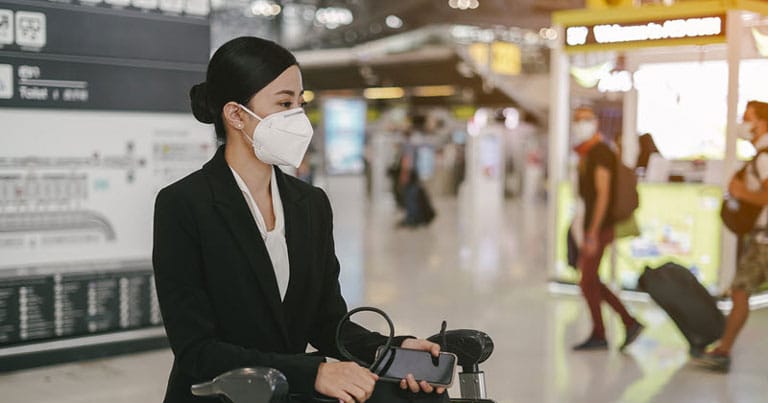Keeping Travel Affordable Post-COVID
There’s a widespread view that travellers and holidaymakers are going to be in for a bonanza once the COVID-19 pandemic is finally brought under control.
The travel industry has taken an unprecedented hit, with international tourism down by as much as 80% in 2020. Airlines, hotel chains, booking websites and travel agencies have lost billions of dollars in revenue.
Their first priority when restrictions are lifted will be to encourage potentially wary travellers back. The best way to do that, the reasoning goes, will surely be to cut prices and make holidaymakers offers that are too good to refuse.
But is that really the way it will pan out? Not everyone agrees. For 2021 at least, with so much uncertainty around despite the promise offered by vaccines, many believe travel will continue to carry financial (and other) risks.
With ongoing restrictions, fewer flights and the heightened risk of cancellations, you can make the counter argument that travel companies cannot afford to be generous with their prices. That’s why some predictions reckon the cost of travelling abroad will be 25%-50% higher than in previous years.
It may well be that paying a little more than we have been used to in the past is something we all have to take in our stride. On the other hand, there’s no doubt that travel firms will be scrambling for as much business as possible, so there are still likely to be bargains to be found. As always, the key is to shop around and be as flexible as possible.
Know what you are paying for
You would also be well advised to be a little more cautious in making your travel plans. This should certainly involve doing your research about where you wish to travel, and also who you are booking with. The 2020 summer holiday season saw a spike in travel-related fraud, with criminals using fake listings and refund scams to con people out of money.
COVID has made cancellations one of the biggest financial risks associated with booking a holiday. Fraudsters prey on this with fake phishing scams offering money-back deals to worried travellers. But that’s not all you should be aware of. There’s arguably more risk involved in getting your money back legitimately should your trip not go ahead.
There’s no substitute here for doing your research and knowing exactly what the cancellation policies of your airline, accommodation provider and/or booking agent are. It’s a very fluid situation. Cancellations might come about last minute because of local travel restrictions, or you might have to cancel because one of your party falls ill or has to self-isolate. Policies on paying refunds in either of these circumstances vary from company to company.
Protect yourself with travel insurance
It won’t be unusual to find travel deals that offer no refunds at all for COVID-related cancellations, particularly at the cheaper end of the market. But that doesn’t mean grabbing a bargain deal has to mean risking your money. The best way to cover yourself is to take out travel insurance.
Again, make sure you do your research, as many travel insurance providers are restricting the level of cover they offer for COVID-related cancellations and medical claims. Ideally, you want single trip travel insurance that provides comprehensive cover for cancellations in all circumstances, including you or a member of your party falling ill with COVID-19.
Finally, it is equally important to do your research about your destination before you book. Some countries have entry requirements and COVID-related restrictions that make travel prohibitive, even if they are technically open to foreign visitors. The UK, for example, has introduced a policy or requiring all arrivals from so-called ‘red zone’ countries to quarantine in a hotel for 10 days on arrival, at their expense – with a fixed cost of £1,750.
This is not just relevant to travellers wanting to holiday in the UK. It is also something UK residents need to be aware of in their choice of destination, otherwise they could face a very expensive quarantine period on arrival back in the country before they are allowed home.

